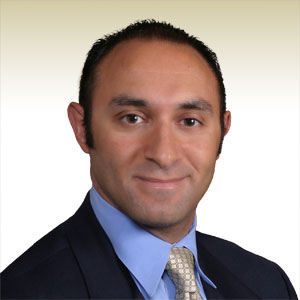Daily Archives: November 3, 2016
What can Osteopathic Manipulation do for YOU?
What can Osteopathic Manipulation do for YOU?
Osteopathic manipulative treatment (OMT) is the technique performed by a doctor of osteopathy (D.O.) to manually treat anatomic dysfunctions of muscles, bones, connective tissue, the circulatory, the lymphatic, and nervous systems. OMT has many applications, which can be used to treat disorders of multiple body systems (usually simultaneously). It can assist in the mobilization of fluids in the circulatory, lymphatic, and respiratory systems. More specifically, some conditions which could be treated are circulatory disorders (which involve our heart and blood vessels), lymphatic disorders (which involves our channel of vessels that circulate lymph), respiratory disorders (which involves our lungs and the muscles involved in breathing/respiration), musculoskeletal disorders (our muscles, bones, and their attachments), and disorders of the nervous system (involving our brain, spinal cord, and nerves). Some examples of conditions in which OMT can be helpful include musculoskeletal pain, myofascial pain, whiplash syndrome, post- concussive syndrome, sinus congestion, edema/lymphedema, and pulmonary congestion. Each system and treatment indication utilizes its own osteopathic techniques.
The osteopathic physician (D.O.) has received 2 years of training during medical school to recognize these dysfunctions and formulate an appropriate application of OMT using osteopathic principles. This training is in addition to the basic sciences of human anatomy, physiology, pharmacology, pathology, neuroanatomy, psychiatry, microbiology, histology, and others which are used in traditional medical treatments, i.e. the use of pharmacology and surgery for treatment.
The beauty of the OMT option is that it can be accomplished
1) in a short period of time,
2) in the office,
3) without the use of special equipment or medications.
All that is needed is an informed and consenting patient , a standard orthopedic exam table, and a trained Osteopath (D.O.). Furthermore, most treatment, if delivered appropriately and to the right patient with the right indication, can be performed risk free, i.e. negligible risk of injury to the patient. Now let’s look at a few examples of what OMT can do for you!
The musculoskeletal system and myofascial dysfunction are commonly treated by practitioners of OMT. The indications for OMT in these cases are muscle contractures, muscles sprains, limited range of motion or pain in certain joints, low and mid back pain, neck pain, rib dysfunctions, and whiplash, to name a few. OMT in these situations can not only improve or decrease pain, but can also improve one’s ability to perform activities of daily living and even improve athletic performance.
Tension headaches can be treated with osteopathic manipulation when applied to the contributing cranial (skull) and cervical (neck) musculature. Additionally, as mentioned earlier, whiplash injuries can also be alleviated through the correct application of OMT. It has also been reported that post-concussive syndrome can be treated (and even shortened) by the use of the craniosacral subtype of OMT. Personally, I have found good results with the patients I have treated with these conditions. Sinus congestion (in the absence of active infection) can also be alleviated with the use of osteopathic techniques applied correctly in the office.
Many people are troubled by edema (swelling or “fluid retention”) in their legs. This can also be found in the arms (and / or legs) in the case of lymphedema which can occur due to congestion or blockage of the lymphatic channels or after removal of lymph nodes for cancer surgery, tumor, or infection. Using a series of osteopathic techniques the lymphatic system can be assisted in the flow of lymph through coordinated muscle or thoracic pumping and coordinated breathing techniques performed by the OMT practitioner and the patient, respectively.
Finally, as the spouse of a beautiful mother and the father of two beautiful girls, I can tell you that musculoskeletal complaints during pregnancy can affect not only the quality of life of the pregnant mother, but also the supportive, loving, and very patient spouse. Common complaints during pregnancy include sciatica, low back pain, leg swelling,.and pelvic pain. Some of these can persist, specifically pelvic discomfort, even postpartum. These can be safely and carefully alleviated, or treated, with good results in the office when performed appropriately by a skilled practitioner of OMT.
To learn more about the many types of OMT which may be of benefit to you please visit movewellfeelwell.net or www.osteopathic.org.
I look forward to meeting you and helping you move well and feel well.

